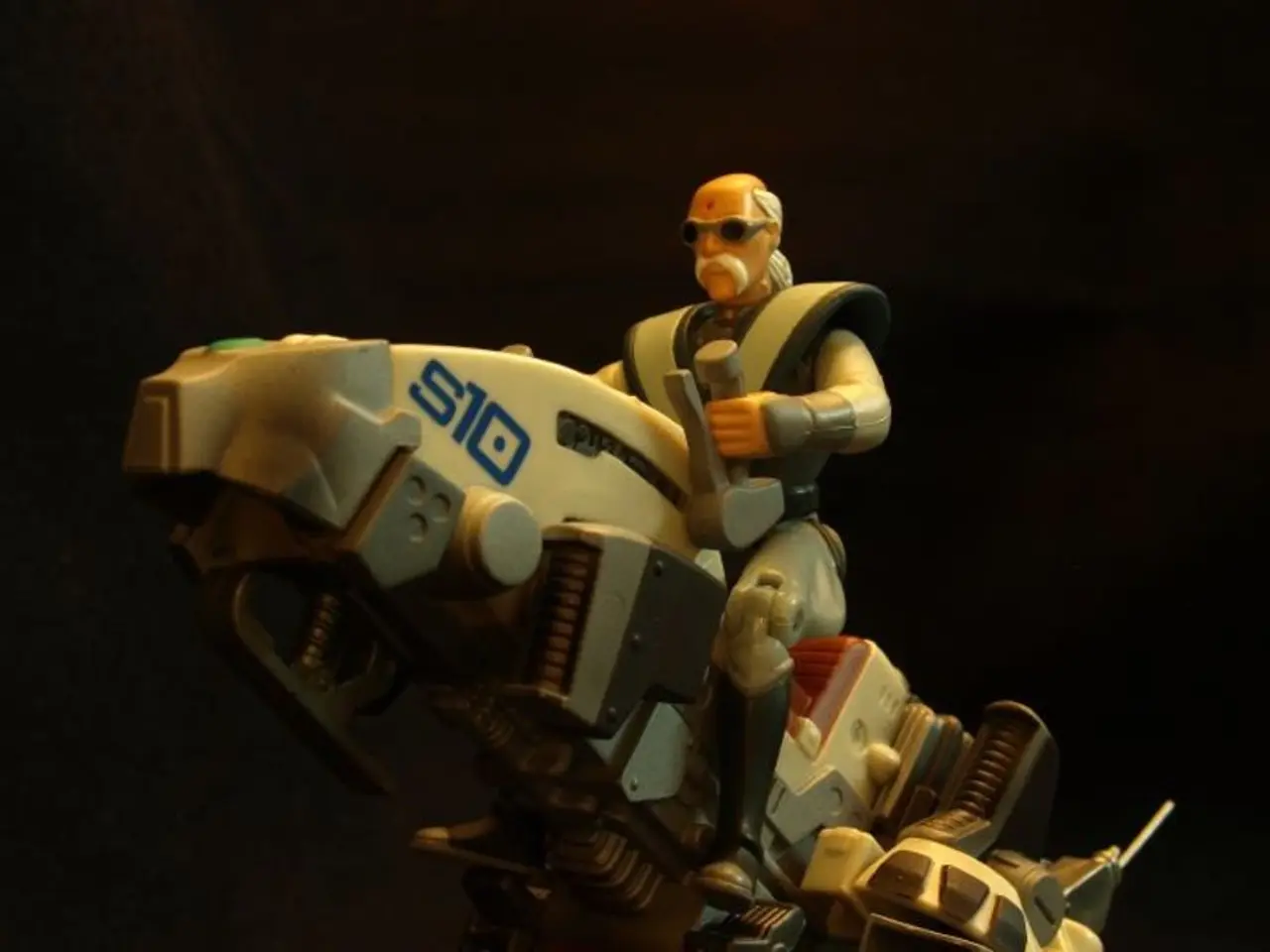Artificial Intelligence Evolution in Cars and Production: Tesla's Pioneering Role in AI-Driven Automobiles and Factory Operations
Tesla's Quest for Autonomous Electric Transportation
Tesla, the electric vehicle pioneer, is aiming to revolutionise transportation with its ambitious plan to create a network of robotaxis using fully self-driving vehicles. As of 2025, no true commercial robotaxis are active yet, but Tesla is determined to keep pushing towards this goal.
Tesla's AI system, while making significant strides, encounters edge cases that it cannot reliably solve. Regulators are demanding extensive testing data and evidence that an autonomous Tesla is as safe as (or safer than) a human driver in all conditions.
The ultimate prize, a fleet of Tesla robotaxis autonomously ferrying passengers, could revolutionise transportation and Tesla's business model. Achieving Level 4/5 autonomy (full self-driving with no human needed) is extremely hard, but Elon Musk envisions Tesla owners being able to send their cars out as self-driving taxis when they're not using them.
Tesla started a small pilot program in 2023-2024 with a dozen Model Y SUVs operating as autonomous taxis in a limited area of Austin, Texas. Regulatory approval is a big unknown for full self-driving rollout. Getting to a fleet of robotaxis will demand technical mastery and patience, refining AI to handle corner cases and exhibit something like human common sense, and satisfying regulators that its self-driving cars are unequivocally safe.
In terms of manufacturing, Tesla has shifted from excessive automation—previously causing production delays and quality issues—to a hybrid human-robot collaboration model. This balance leverages AI to optimise workflow flexibility and production precision, resolving past bottlenecks and establishing Tesla as a leader in AI-driven manufacturing innovation.
Regarding self-driving capabilities, Tesla has solidified a multi-billion dollar partnership with Samsung Electronics to produce advanced AI chips designed specifically for its Full Self-Driving (FSD) systems. These chips, fabricated with cutting-edge 4-nanometer and anticipated 2-nanometer processes, power both the in-vehicle FSD computers and the back-end AI training infrastructure like Tesla’s Dojo supercomputer.
The collaboration with Samsung not only mitigates supply chain risks by domesticating chip production but also supports Tesla's ambitious target to equip 30% of its vehicles with FSD capabilities by 2027. Building public trust in Tesla's AI to handle driving will take time and safe operation.
In summary, Tesla AI technology improves the precision and responsiveness of self-driving functions while transforming manufacturing efficiency through intelligent automation integration. The dual AI influence positions Tesla as a pioneering force in both electric vehicle manufacturing and autonomous driving innovation.
However, autonomous AI requires an enormous amount of diverse driving data to learn from. Low-visibility conditions like heavy snow, unpredictable human behavior, complex construction zones continue to challenge Tesla AI. The Tesla robotaxi network could offset the cost of car ownership and dramatically increase vehicle utilization, but laws haven't been written yet to define liability and insurance for robotaxis in some places.
Tesla continues to push toward the robotaxi dream and has unveiled designs for a dedicated "Cybercab" robotaxi vehicle without a steering wheel or pedals. The ultimate prize, a fleet of Tesla robotaxis autonomously ferrying passengers, could revolutionise transportation and Tesla's business model, giving Tesla cars "quasi-infinite" value and changing the economics of transport.
[1] Tesla's AI-driven manufacturing innovation: https://www.tesla.com/blog/building-better-factories [2] Tesla's partnership with Samsung Electronics: https://www.tesla.com/blog/accelerating-autonomy [3] Tesla's Dojo supercomputer: https://www.tesla.com/blog/dojo [4] Tesla's AI impact on manufacturing and self-driving capabilities: https://www.tesla.com/ai
- Artificial Intelligence (AI) plays a crucial role in Tesla's quest for autonomous electric transportation, particularly in powering its Full Self-Driving (FSD) systems, which expect to equip 30% of its vehicles by 2027 thanks to a partnership with Samsung Electronics, and are improving precision and responsiveness through advanced AI chips designed specifically for this purpose.
- Integrating AI technology not only enhances Tesla's manufacturing processes, making them more efficient and responsive, but also pushes the boundaries of autonomous driving technology, as Tesla continues to face challenges such as handling low-visibility conditions, unpredictable human behavior, and complex construction zones, aiming to revolutionize transportation through a fleet of AI-driven robotaxis.




